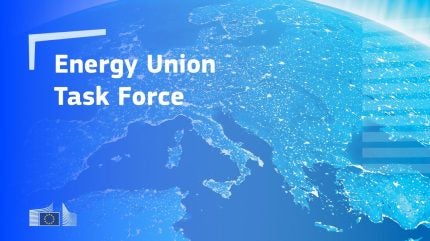
The European Commission (EC) and the Polish Presidency of the Council have introduced the Energy Union Task Force to enhance cooperation and coordination on critical energy policy issues across Europe.
The task force is a strategic initiative under the Action Plan for Affordable Energy and is designed to provide political momentum to overcome obstacles hindering the development of a true Energy Union.

Discover B2B Marketing That Performs
Combine business intelligence and editorial excellence to reach engaged professionals across 36 leading media platforms.
The priorities outlined for the task force include the optimisation of energy infrastructure use, acceleration of interconnectivity, and improvement of grid and energy system planning coordination among member states.
Additionally, the task force will assist in overseeing the execution of national measures to implement the Action Plan and engage in dialogue on common interests related to the application of EU energy laws.
European Commissioner for Energy and Housing Dan Jørgensen said: “It is only by working even closer together that Europe will achieve a genuine Energy Union.
“This new task force will drive our work to deliver what our citizens and businesses are calling for: a secure, clean and affordable energy system. This is the backbone of an economy that prospers, and of a society that brings about benefits for all.”

US Tariffs are shifting - will you react or anticipate?
Don’t let policy changes catch you off guard. Stay proactive with real-time data and expert analysis.
By GlobalDataThe Energy Union Task Force will benefit from the support of key EU institutions and agencies such as the European Investment Bank and the Agency for the Cooperation of Energy Regulators, alongside other technical experts when necessary.
Regular meetings will focus on creating strategic deliverables, which will vary according to specific needs.
A forthcoming meeting in early September will address the first concrete policy items under the task force.
The Energy Union Task Force is an informal entity without a legal mandate and will not engage in formal EC or Council processes.
However, it will provide regular reports to the president of the EC, the European Council, the Energy Council, and the European Parliament.





